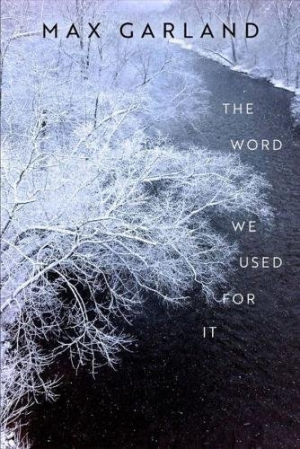The Word We Used For It
Alas, young poet, lock away the sharp utensils before indulging in a few lines from this new Max Garland collection. Pick a page, any page—33, for example—and witness this astounding level of thoughtfulness and delivery:
I like the way objects retain the history
of motion in their shapes, and things that aren’t
still appear.
A former poet laureate of Wisconsin, Garland takes every bit of eleven or so years to let go of a new collection; this latest one is only his third in the last twenty-two years. That says something, youngster.
Heaven
My grandfather wore a sweat stained fedora,
a red feather from a bantam rooster in the band,
and the mule he commanded seemed not so much
attached to the plow as arrayed in leather and hemp,
intersecting rings, halter, belly band, and blinder,
and nebular swarms of sweat bee, horse fly, bottle fly,
and gnats like live particles of penance he hosted
for the curse of being a mule. My grandfather believed
work was the surest way to navigate time,
and time, though high and mighty any given day,
though flashed out in sun or expensive as rain,
all came down to the dirt in the end, and you plowed
time, or your part of time, and planted and prayed,
but not with words you’d hear in church,
and no more to God than the mule prayed to God,
and no more toward heaven than the end of the row—
grain in the bucket, cold water from the well.
Reviewed by
Matt Sutherland
Disclosure: This article is not an endorsement, but a review. The publisher of this book provided free copies of the book to have their book reviewed by a professional reviewer. No fee was paid by the publisher for this review. Foreword Reviews only recommends books that we love. Foreword Magazine, Inc. is disclosing this in accordance with the Federal Trade Commission’s 16 CFR, Part 255.

